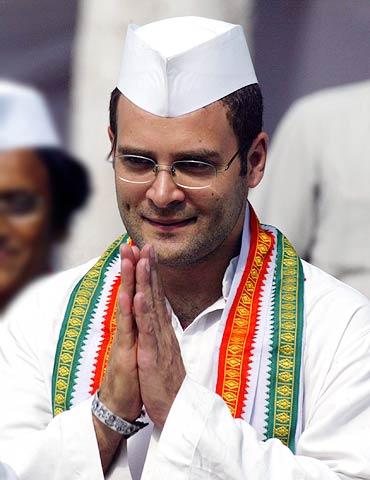
'Sonia Gandhi is constantly playing to the gallery...'
'The BJP does not offer any credible alternative to the Congress. The Congress is the lesser evil if you had to choose...'
Thomas Macaulay biographer Zareer Masani in a lively conversation.
Zareer Masani has written two books on the Nehru-Gandhis; his latest work is the biography of a widely debated figure in India's history, Thomas Babington Macaulay.
Macaulay introduced English as a medium of learning in India which created a class of Westernised Indians, often derisively referred to as 'Macaulay's Children.'
Masani looks at Macaulay, the politician-scholar and explores what in spite of his many prejudices makes him unique among 19th century intellectuals.
The son of Minoo Masani, who co-founded the Swantantra Party and had a political career spanning four decades, Zareer Masani's earlier book on Indira Gandhi takes a critical look at the Emergency.
In the concluding part of an interview to Rediff.com's Archana Masih, he explains why Macaulay's legacy is more considerable than any other non Indian in India and points out the failings of the Congress and the BJP, India's leading political parties.
You have written on the Gandhis before, how different do you think the Congress is likely to be under Rahul's leadership?
I don't think Rahul Gandhi has a vision for India or ideas as such. He seems a pleasant man.
Everything is relative in Indian politics. I am sure he is a very decent person, but I don't think he is terribly bright.
I don't think we can expect great thinking or ideas, but dynasticism seems so entrenched in India that it doesn't surprise me that people feel comfortable with someone like him rather than someone who comes from an unknown family.
We need to outgrow that, there should be more meritocracy and your parentage shouldn't play such a big role.
It is very clear in Rahul's case as it was in his father's case or his mother's case that their only qualification is by association with Indira and Jawaharlal.
How have you seen the Congress under Sonia Gandhi's leadership?
I am not very impressed by her presidentship. She carries out a certain kind of populism.
Manmohan Singh is a highly intelligent and decent person, but I don't think he has the political base to carry on the kind of programmes he would have and Sonia is just very much interested in winning elections which is understandable because otherwise she wouldn't be where she is.
But she is constantly playing to the gallery and to public prejudices often. It has taken her two years to come around to backing the liberalisation of the retail sector which Manmohan Singh was trying to push through two years ago.
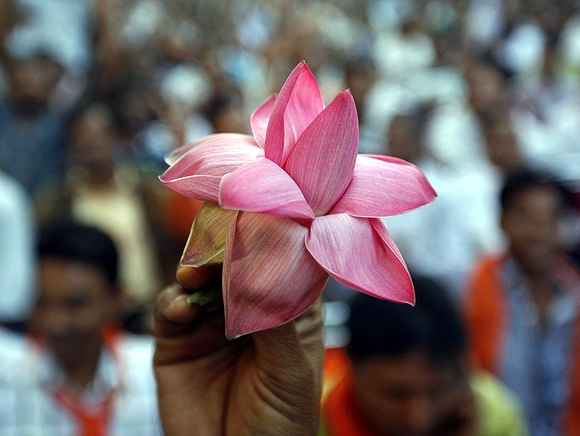
Where do you see the Congress party post-Sonia Gandhi?
It's going to carry on as one of the largest pan Indian parties, but increasingly we are seeing that regional parties are becoming more and more powerful and any central party will have to work in coalition, whether it is the Congress or the BJP.
I have to say that the BJP does not offer any credible alternative to the Congress. It is very backward looking, rather chauvinistic, party.
From my point of view, the Congress is the lesser evil if you had to choose. But I think there is a vacuum of certain national parties because of the rise of regionalism and that may in the long run not be such a bad thing.
Maybe India will become a much looser federation, maybe regional governments will be making most of the decisions.
There remains a lot of despondency about the state of governance in the country.
The standard of governance is very poor. There are states which seem to have better governance than others. I am struck by the fact -- though I haven't been there in a long time -- that things have improved considerably under the present chief minister in Bihar.
So individuals and change of governments can make a difference. There are states that have made strides, but it varies so much.
Certainly the political system has encouraged a huge amount of corruption and unaccountability among politicians because they have been able to manipulate vote banks and elections in a way that protects the corrupt, but with time villagers are becoming more aware and this again leads to education.
Increasingly with English medium education, people will become much more globally aware and governments will have to become more accountable.
I am optimistic that a generation from now things will be better rather than worse.
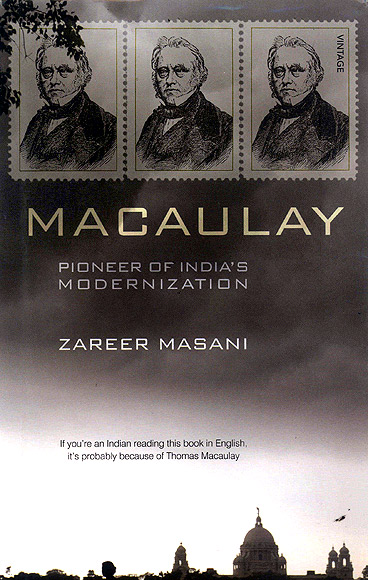
Macaulay is both reviled and admired in India, but has he not been more reviled than admired in our country?
Yes, but I think now there has been a more balanced reassessment. Indian historians like Ramchandra Guha have been writing rather positive articles reminding people that we wouldn't have the rule of law or the Indian Penal Code without Macaulay.
The reason he was reviled was -- and understandable in a way -- is that he was a product of his time.
No doubt he was racist, he did regard English culture as superior to any in the world, not just Indian culture. He would have felt the same for Chinese...
He was very derogatory about the French and the Germans and thought that Britain had found the Holy Grail of modernisation, democracy, progress etc.
He liked to provoke people, so he made comments that if taken out of context sound very derogatory like one shelf of any good European library is worth the entire native literature of India and Arabia.
Actually the context in which he said that was that if we are looking for useful knowledge for the future like science, medicine, then one shelf of European library was more useful because by native literature he meant the classics that were not introducing people to modern scientific thinking.
He put it in a way that was derogatory and that was his attitude, but then if you go back to the 1830s and 1840s, I don't think you would find anyone who was not racist -- in India, let alone in Britain.
In India, Indians were racists about other Indians, were extremely racist about Europeans, they used to call them White uncooked people and they were regarded as unclean. So these attitudes were global.
This notion of equal rights have come much later. Macaulay was of this time when it was normal to be racist whether you were Eastern, Western, Indian, Chinese, English, whatever...
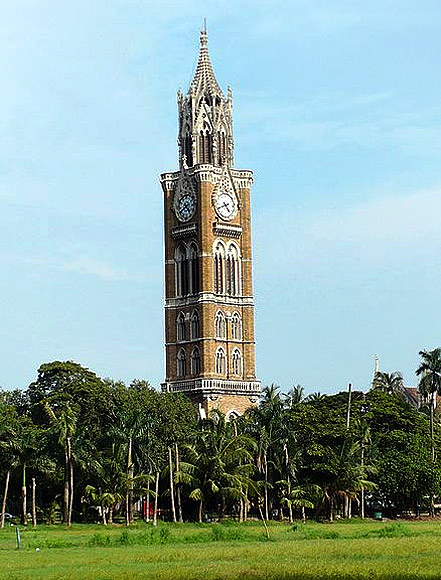
How do you see his place in India's history against the background of English education, the Indian Penal Code and the civil services?
He was an amazing mind. I think there are very few minds of that calibre that have existed in modern history. India was fortunate to have that input.
His legacy has been enormous. I would argue more than any other non Indian has had.
It is coming up to 200 years from the time he was here, the fact that you still have groups like the Dalits celebrating and the fact that people are still arguing about him shows that he did have that impact.
Certainly, his name is much more current in India than in Britain.
There has been criticism about certain parts of the Indian Penal Code being outdated since it was drafted in the 1860s. Why has it been difficult to change outdated laws in keeping with present times?
I think the laws are not outdated. The India Penal Code has been amended through the years. It was meant to prescribe principles rather than very specific details about what you do in each situation, so I think those principles still apply.
The basic principles were equality before the law which had not existed in Indian law before, the second principle was that the punishment should fit the crime which is still there.
The law does get amended as necessary, it's not as if it has been frozen as it was.
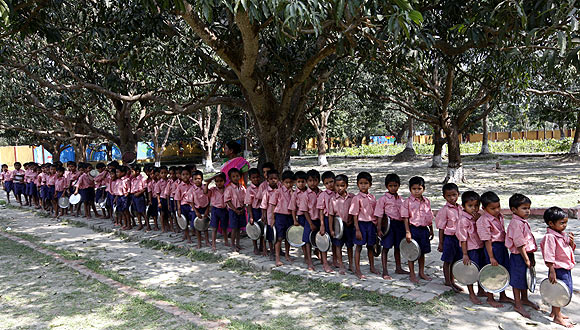
You also say that in his lifetime, Macaulay was as famous as Charles Dickens.
Do you think he would have been as famous even in death had he written fiction instead?
I don't think he was really interested in writing fiction. He needed real events to focus on, but he certainly made history writing a very popular medium and that has come back in a way, particularly in the West -- you have many authors like William Dalrymple who write very accessible history. I think he (Macaular) was the founder.
It is a mystery why he was so popular in his own time as Dickens. He was very widely read in America. It was the quality of his writing; he wrote very beautiful, colourful, prose. Although it was not fiction it has a grand narrative sweep to it.
You mention in your book how the government has failed to provide equal access to English as it has to Hindi or to any other regional language in government-run schools.
What could be the reason for such resistance?
I am not sure there is resistance any longer because I think the pendulum has swung.
In post-Independence period there was a nationalist emphasis on promoting Hindi and then the regional nationalisms came up which laid emphasis on promoting the regional languages.
Certainly since the 1990s with the liberalisation policy, central -- and increasingly state -- governments have been recognising that they need to offer English in primary schools.
The problem is resources and there is a huge debate about investment in education, how the funds are misallocated and misappropriated.
They are not producing better teachers and that affects English like every other subject.
There is a big shortage of qualified English teachers in India, whereas the Chinese and Japanese are putting huge resources in training English teachers.
I don't think it's resistance, it's just failure because the government hasn't organised itself. It probably varies from one state to another because education is a state subject.
I believe Karnataka, a BJP-ruled state, has tripled the number of state schools that were allowed to introduce English at the primary school level compared to the previous year. They were clearly responding to public pressure at the grassroots.
In Maharashtra English is taught widely in vernacular medium school though the quality is not very good.